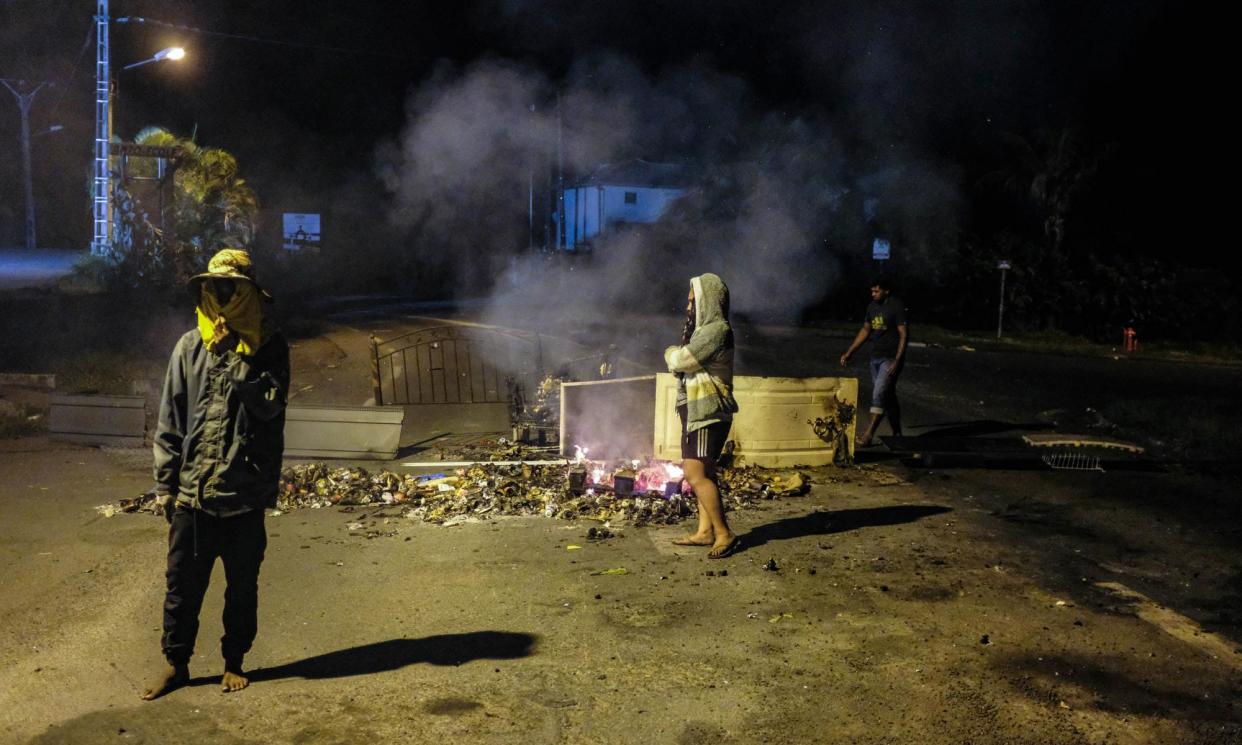Fresh unrest in New Caledonia after independence activists flown to France for detention

Buildings, including a police station and a town hall, were set on fire in New Caledonia overnight, authorities said, as the French Pacific territory was hit by a new surge of unrest.
It comes after seven independence activists linked to a group accused of orchestrating deadly riots last month in the French Pacific territory were sent to mainland France for pre-trial detention, a local prosecutor said.
“This transfer was organised during the night by means of a plane specially chartered for the mission,” prosecutor Yves Dupas said in a statement.
The seven were sent to mainland France, he added, “due to the sensitivity of the procedure and in order to allow the investigations to continue in a calm manner, free of any pressure”.
The decision to transfer some defendants to detention centres in France has sparked outrage among the independence activists, who called the transfer a “political deportation.”
The situation remains particularly tense in New Caledonia after the arrest of eleven independence activists, suspected of orchestrating and planning the violence that has affected the archipelago since 13 May.
Riots, street barricades and looting broke out in New Caledonia last month over an electoral reform that would have allowed long-term residents to participate in local polls.
The archipelago’s Indigenous Kanaks feared the move would dilute their vote, putting hopes for eventually winning independence definitively out of reach. Nine people – including two police officers – died in the violence which caused widespread damage to businesses, shops and homes.
The arrests on 19 June described by Dupas as the “alleged instigators” of a significant number of serious crimes, has led to a resurgence of unrest on the ground.
Barricades have once again been erected all over the main island, and clashes between law enforcement and protesters have resumed with greater intensity as high school students are set to return to classes on 24 June.
In a statement released on Monday, the high commissioner of the Republic in New Caledonia, Louis Le Franc alleged numerous offences had been committed on Sunday night, including fires at the Koumac town hall, the premises of the municipal police in Dumbéa, an attack on a gendarmerie in Maré, and various alleged acts of destruction and vandalism in different neighbourhoods of Nouméa.
The High Commission said “several fires were extinguished”, particularly in Ducos and Magenta, adding that “the premises and vehicles of the municipal police and private vehicles” were set on fire.
“Abuses, destruction and attempted fires were also committed in several places in Paita,” in the Noumea suburbs, alleged the High Commission, which said police in Mare had also been attacked.
Daniel Goa, president of the Union Calédonienne, the main independence party, said the transfer of the arrested activists to France was “political deportation”.
“The independence of the judiciary is a farce in New Caledonia,” said Goa.
Goa also denounced “France’s colonial, repressive, and retrograde policy against the Kanak people.”
After France was plunged into frenzied campaigning in snap parliamentary elections, president Emmanuel Macron suspended the changes to voting rights in New Caledonia.
But the recent arrests threaten to further expose the divisions in the archipelago’s political landscape ahead of the first round of voting in the elections, to be held on 30 June. In New Caledonia, the elections have been unanimously deemed inopportune by political leaders from all sides.
Agence France-Presse and Associated Press contributed to this report

 Yahoo News
Yahoo News 
